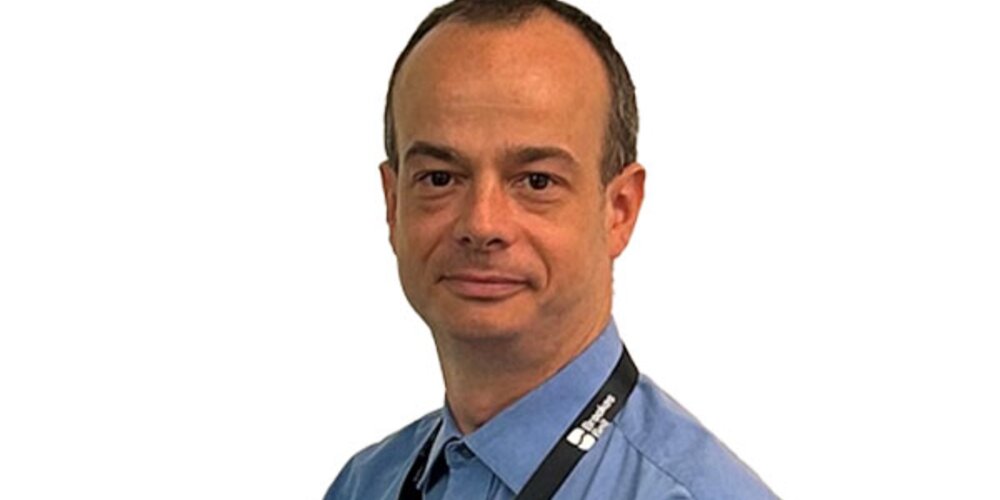Browse our services
Explore how Brookes Bell can help you
Find an expert
Meet our team, find and expert and connect
Contact us
Get in touch, we're here to help

Modern-day fuel chemists are often expected to have many strings to their bow. Within the maritime sector, fuel chemists are focused on the chemistry and performance of fuels used in commercial vessels, from traditional marine gas oil and high sulphur heavy fuel oil to newer alternatives such as VLSFO and lower emission products such as LNG, methanol, ammonia and biofuels.
With the maritime fuel industry entering a new phase of scrutiny, particularly around emissions regulations and the adoption of greener alternative fuels, the need for experienced and vigilant fuel chemists to support ship owners and operators is greater than ever before.
Joining Brookes Bell in August 2024, David Browbank has more than 26 years of experience working in the scientific testing and analysis industry. His background includes scientific analysis within food, soil, water and environmental sectors, with his more recent tenure at Intertek Lintec, one of the leading total quality assurance providers.
“During my time at Intertek Lintec, any sludging issues or problematic fuels that conformed to the traditional testing limits and methods inevitably ended up on my desk. As a result, I began to understand more about the unique problems faced by the use of fuels throughout the marine sector,” David noted.
“I advanced into a more senior role, moving away from day-to-day analysis of fuels and towards more technical reporting. Essentially, I had the experience of looking at the numbers and identifying the key trends and issues that were impacting various fuels. Being able to take the raw analysis data and lay them out straight for customers is a vital skill for a fuel chemist but one that is increasingly important for the maritime sector in this new era of marine fuel development,” he added.
His experience in marine fuel chemistry was what led to David joining Brookes Bell as it sought more knowledgeable industry experts to complement its burgeoning team of Fuel Chemists, Marine Engineers, Metallurgists and other expert witnesses.
“A lot of the incidents that come through Brookes Bell involving engine damage and/or operability issues always ask the same question: ‘Is it tied to the fuel?’ If it’s a mechanical issue, our engineers take the lead, but when fuel is the suspected cause, this is complimented by our renowned expert fuel chemists, my background in non-routine testing—such as Gas Chromatography–Mass Spectrometry (GC-MS) and Fourier Transform Infrared (FTIR) testing—helps me interpret the data and identify how specific compounds might relate to the problem,”
“Not a lot of fuel analysts get to do these types of non-routine testing, so it is a fascinating and exciting role to have at Brookes Bell within such a dynamic industry,” David noted.
David’s 26-year background in analytical chemistry means he has seen how issues and trends can often reemerge. As such, his experience in a wide range of sectors and scientific fields means he is ideally suited to assist ship owners and operators with understanding the impact of their fuel choice, particularly as many begin to adopt cleaner alternatives to cut down on emissions.
“Five plus years ago, we might have encountered a chemical in marine fuel that was purported to have contributed to engine issues but disappeared quickly. With new fuel blends coming out, this brings new challenges for a marine fuel chemist because we often don’t know what is being blended in. However, these chemicals often reemerge in one form or another, and by linking them to previous studies and incidents, we can better consider the likelihood that these chemicals were causative of the damage/issue or not. All this means the fuel chemists at Brookes Bell are busier than ever,” he said.
It has been five years since the launch of the IMO 2020 Sulphur Cap regulation and, despite new fuels and advanced engine technologies, problems remain with fuel compatibility, stability and viscosity challenges. The inclusion of the FuelEU Maritime regulation in this equation is only going to make things more difficult. David’s inclusion within Brookes Bell’s wider team of industry experts, complimented by a state-of-the-art laboratory, The Lab, means he is ideally suited to help the global shipping industry navigate yet another uncertain period for the marine fuel industry.